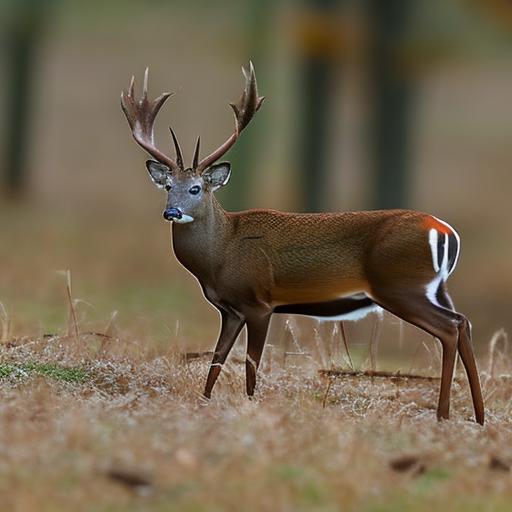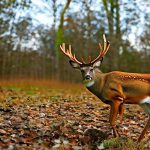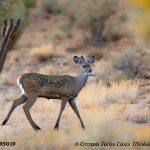Your cart is currently empty!

deer hunting stories

Deer hunting is a popular activity among outdoor enthusiasts, providing a thrilling and challenging experience in the great outdoors. In this blog post, we will explore various aspects of deer hunting and share personal stories that highlight the excitement, challenges, and camaraderie associated with this beloved pastime.
Key Takeaways
- My first deer hunting experience was thrilling and unforgettable.
- Tracking a wounded deer for hours required perseverance and determination.
- My biggest regret in deer hunting was the one that got away.
- Hunting with family created lasting memories and strengthened our bond.
- Passing down hunting skills and knowledge to future generations is an important tradition.
The thrill of the hunt: My first deer hunting experience
My first deer hunting experience was filled with anticipation and excitement. As I prepared for the hunt, I couldn’t help but feel a sense of adventure and wonder. The early morning hours were spent quietly making my way to the hunting spot, carefully navigating through the dense forest. The adrenaline coursed through my veins as I settled into my stand, waiting for the perfect moment to take aim.
The hours seemed to pass by slowly, but the thrill of the hunt kept me engaged. Finally, a majestic buck appeared in my line of sight. My heart raced as I steadied my rifle and took aim. The shot rang out, and I watched as the buck fell to the ground. The feeling of accomplishment that washed over me was indescribable. It was a moment of triumph and a memory that would stay with me forever.
A tale of perseverance: Tracking a wounded deer for hours
Not every hunting experience ends with a quick and clean kill. There are times when tracking a wounded deer becomes a test of perseverance and determination. On one particular hunt, I found myself faced with this challenge.
After taking a shot at a deer, I realized that it had been wounded but had managed to escape into the thick underbrush. Determined not to let it suffer, I embarked on a long and arduous journey to track it down. For hours, I followed the faint blood trail, navigating through rugged terrain and dense vegetation.
Finally, after what felt like an eternity, I spotted the wounded deer lying motionless in a clearing. The sense of relief and satisfaction that washed over me was overwhelming. It was a testament to the importance of perseverance and the rewards that come with it.
The one that got away: My biggest deer hunting regret
In the world of hunting, missed opportunities are an unfortunate reality. There are times when despite our best efforts, a shot goes awry, and the deer escapes unharmed. I experienced this firsthand during one of my hunts, and it remains one of my biggest regrets.
As I settled into my stand, I spotted a massive buck in the distance. My heart raced with excitement as I carefully aimed my rifle. However, in my haste, I failed to account for the wind and miscalculated the shot. The buck bolted before I could take another shot, leaving me with nothing but frustration and disappointment.
This experience taught me a valuable lesson about patience and precision. It reminded me of the importance of taking the time to properly assess the situation and make calculated decisions. While it was a missed opportunity, it also served as a catalyst for improvement in my hunting skills.
Hunting with family: Creating lasting memories in the woods
One of the most cherished aspects of deer hunting is the opportunity to bond with family members in the great outdoors. Hunting trips provide a unique setting for creating lasting memories and strengthening familial relationships.
I remember one particular hunting trip with my father and grandfather. We spent days preparing for the hunt, scouting locations, and discussing strategies. As we ventured into the woods together, there was a sense of camaraderie and shared purpose that brought us closer.
The memories made during that trip are etched in my mind forever. From sharing stories around the campfire to celebrating successful hunts, every moment was filled with laughter, love, and a deep appreciation for nature. Hunting with family not only creates lasting memories but also ensures that traditions are passed down from generation to generation.
Hunting traditions: Passing down skills and knowledge to future generations
Hunting traditions play a vital role in preserving the skills and knowledge necessary for ethical hunting practices. These traditions are passed down from generation to generation, ensuring that future hunters are equipped with the tools they need to respect the animal and the environment.
From learning how to properly track a wounded deer to understanding the importance of conservation, hunting traditions instill a sense of responsibility and respect in hunters. They teach us about the delicate balance between humans and wildlife and the need to protect and preserve our natural resources.
As experienced hunters, it is our duty to pass down these traditions to future generations. By teaching our children and grandchildren about ethical hunting practices, we ensure that the legacy of responsible hunting continues for years to come.
The unexpected encounter: A unique deer hunting story
One of the most exciting aspects of deer hunting is the unexpected encounters that can occur in the wild. These encounters add an element of surprise and wonder to the overall hunting experience.
During one of my hunts, I found myself face-to-face with a majestic buck. As I quietly observed it from my stand, I marveled at its beauty and grace. The encounter was brief but left a lasting impression on me. It reminded me of the privilege we have as hunters to witness wildlife in their natural habitat.
These unexpected encounters serve as a reminder of the importance of conservation and responsible hunting practices. They remind us that we are not just hunters but stewards of the land, entrusted with protecting and preserving our natural resources.
The ultimate challenge: Hunting in extreme weather conditions
Hunting in extreme weather conditions presents a unique set of challenges for hunters. From freezing temperatures to heavy rain or snow, these conditions test our endurance and resilience. However, they also offer a sense of satisfaction when we overcome these challenges and make a successful kill.
When hunting in extreme weather conditions, it is crucial to be prepared and take the necessary precautions. Dressing in layers, wearing appropriate gear, and staying hydrated are essential for staying safe and comfortable. Additionally, scouting the area beforehand and having a plan in place can help maximize your chances of success.
While hunting in extreme weather conditions may be physically demanding, it also provides a sense of accomplishment and a deeper connection to nature. It is during these challenging hunts that we truly appreciate the beauty and resilience of the natural world.
Hunting strategies: Tips and tricks for a successful hunt
Successful hunting requires careful planning, patience, and the right strategies. Here are some tips and tricks that can help improve your chances of a successful hunt:
1. Scouting: Before heading out on a hunt, spend time scouting the area to familiarize yourself with the terrain, deer patterns, and potential hunting spots.
2. Use the right equipment: Invest in quality gear that is suitable for your hunting environment. This includes clothing, footwear, optics, and firearms.
3. Be patient: Hunting requires patience and perseverance. Stay focused and wait for the right opportunity to make your move.
4. Practice shooting: Regularly practice shooting to improve your accuracy and confidence. This will increase your chances of making a clean kill.
5. Be aware of wind direction: Pay attention to wind direction when setting up your stand or blind. Deer have a keen sense of smell and can easily detect human scent.
6. Hunt during peak activity times: Deer are most active during dawn and dusk. Plan your hunts accordingly to increase your chances of encountering deer.
By implementing these strategies, you can enhance your hunting skills and increase your chances of a successful hunt.
The ethical hunter: Respecting the animal and the environment
Ethical hunting practices are essential for ensuring the sustainability of wildlife populations and preserving our natural resources. As hunters, it is our responsibility to respect the animal and the environment in which we hunt.
Respecting the animal means making clean and ethical kills, minimizing suffering, and utilizing as much of the animal as possible. It also means adhering to hunting regulations and guidelines set forth by wildlife management agencies.
Respecting the environment involves leaving no trace, practicing responsible land management, and participating in conservation efforts. It means being mindful of our impact on the ecosystem and taking steps to minimize our carbon footprint.
To be an ethical hunter, it is important to educate ourselves about hunting regulations, practice proper hunting techniques, and promote conservation efforts. By doing so, we can ensure that future generations can enjoy the thrill of the hunt while preserving our natural resources.
The camaraderie of hunting: Bonding with fellow hunters over shared experiences
One of the most rewarding aspects of deer hunting is the camaraderie that develops between fellow hunters. Hunting trips provide an opportunity to bond with others who share a passion for the outdoors and a love for the hunt.
I have had the privilege of forming deep connections with fellow hunters during my own hunting experiences. From sharing stories around the campfire to helping each other track wounded deer, these shared experiences create a sense of unity and support.
The camaraderie of hunting extends beyond the hunt itself. It is a community that supports and encourages one another, sharing tips, tricks, and stories along the way. Whether it’s celebrating successful hunts or offering words of encouragement during challenging times, fellow hunters become like family.
Deer hunting is a beloved pastime that offers a thrilling and challenging experience in the great outdoors. From the excitement of the hunt to the camaraderie formed with fellow hunters, every aspect of deer hunting provides an opportunity for personal growth and connection.
In this blog post, we explored various aspects of deer hunting through personal stories and experiences. We discussed the thrill of the hunt, tales of perseverance, missed opportunities, hunting with family, passing down traditions, unexpected encounters, hunting in extreme weather conditions, strategies for success, ethical hunting practices, and the camaraderie of hunting.
We encourage readers to share their own hunting stories and experiences in the comments section below. Thank you for reading this blog post and for sharing your love for hunting. Happy hunting!
If you’re a fan of deer hunting stories, you might also be interested in exploring the world of small game hunting. One fascinating article worth checking out is “The Best Shot Size for Rabbit and Squirrel” on Old Oak Syndicate’s website. This informative piece delves into the different shot sizes and ammunition options that can enhance your success when hunting these elusive creatures. So, if you’re looking to expand your hunting repertoire beyond deer, click here to read more about the best shot size for rabbit and squirrel hunting.
FAQs
What is deer hunting?
Deer hunting is the practice of pursuing and killing deer for food, sport, or population control.
What are some common methods of deer hunting?
Some common methods of deer hunting include using firearms, bows and arrows, and traps.
What are some safety precautions hunters should take while deer hunting?
Hunters should always wear bright, visible clothing, use proper hunting equipment, and be aware of their surroundings to avoid accidents.
What are some popular locations for deer hunting?
Deer hunting is popular in many regions of the world, including North America, Europe, and Asia.
What are some reasons people hunt deer?
People hunt deer for a variety of reasons, including for food, sport, and population control.
What are some ethical considerations when it comes to deer hunting?
Some ethical considerations when it comes to deer hunting include ensuring that the animal is killed quickly and humanely, respecting hunting regulations and laws, and not hunting for purely recreational purposes.

Herb has been a longtime lover of the outdoors. Whether it be hunting, camping, fishing or just getting outside to reset. Proud father and animal lover. Bourbon anyone?

by
Tags:
Comments

Categories
- Big Game Hunting (301)
- Deer (202)
- Reviews (3)
- Shooting (16)
- Slingshot (1)
- Small Game Hunting (42)
- Upland Hunting (126)
- Waterfowl Hunting (3)





Leave a Reply